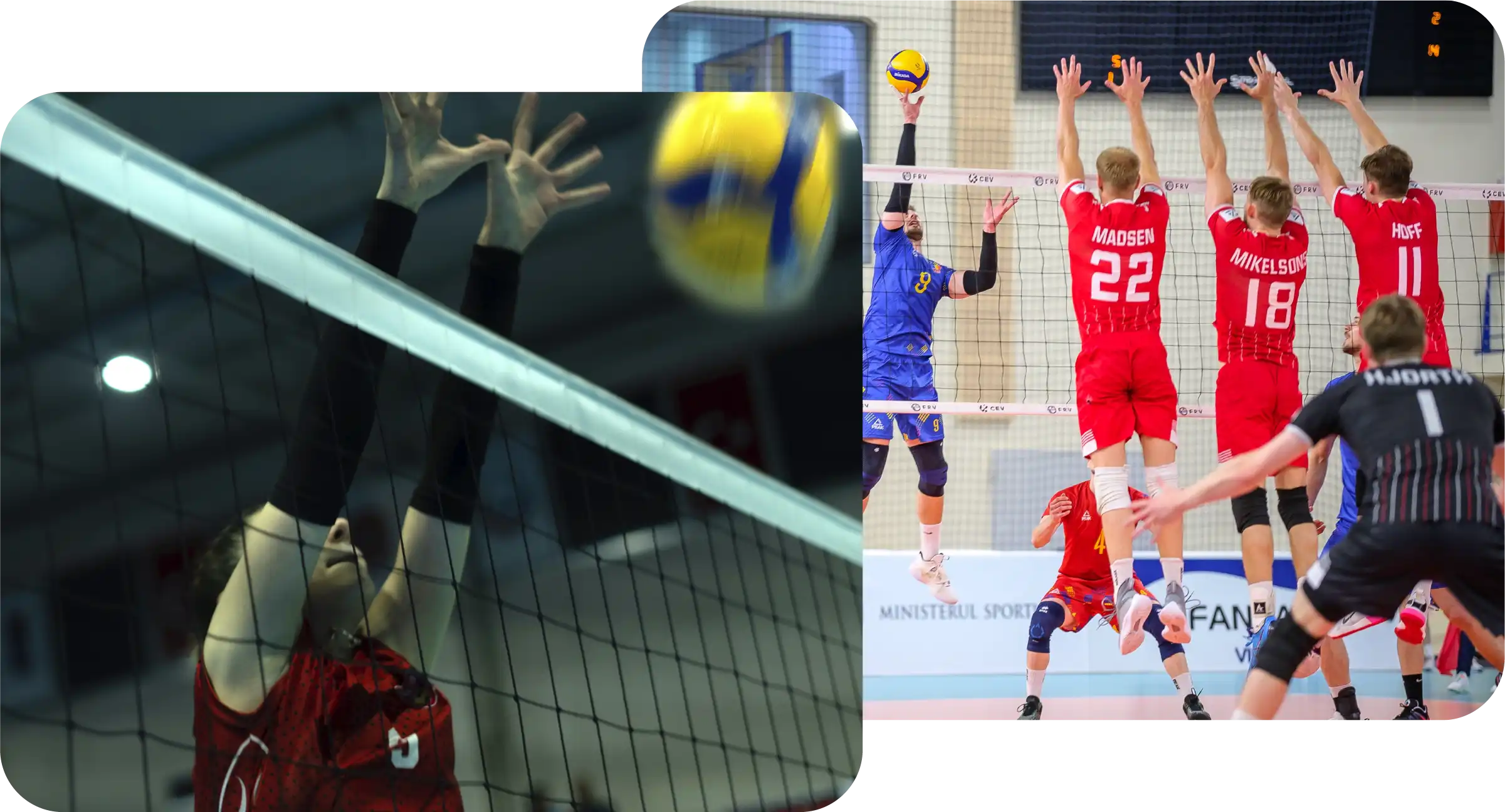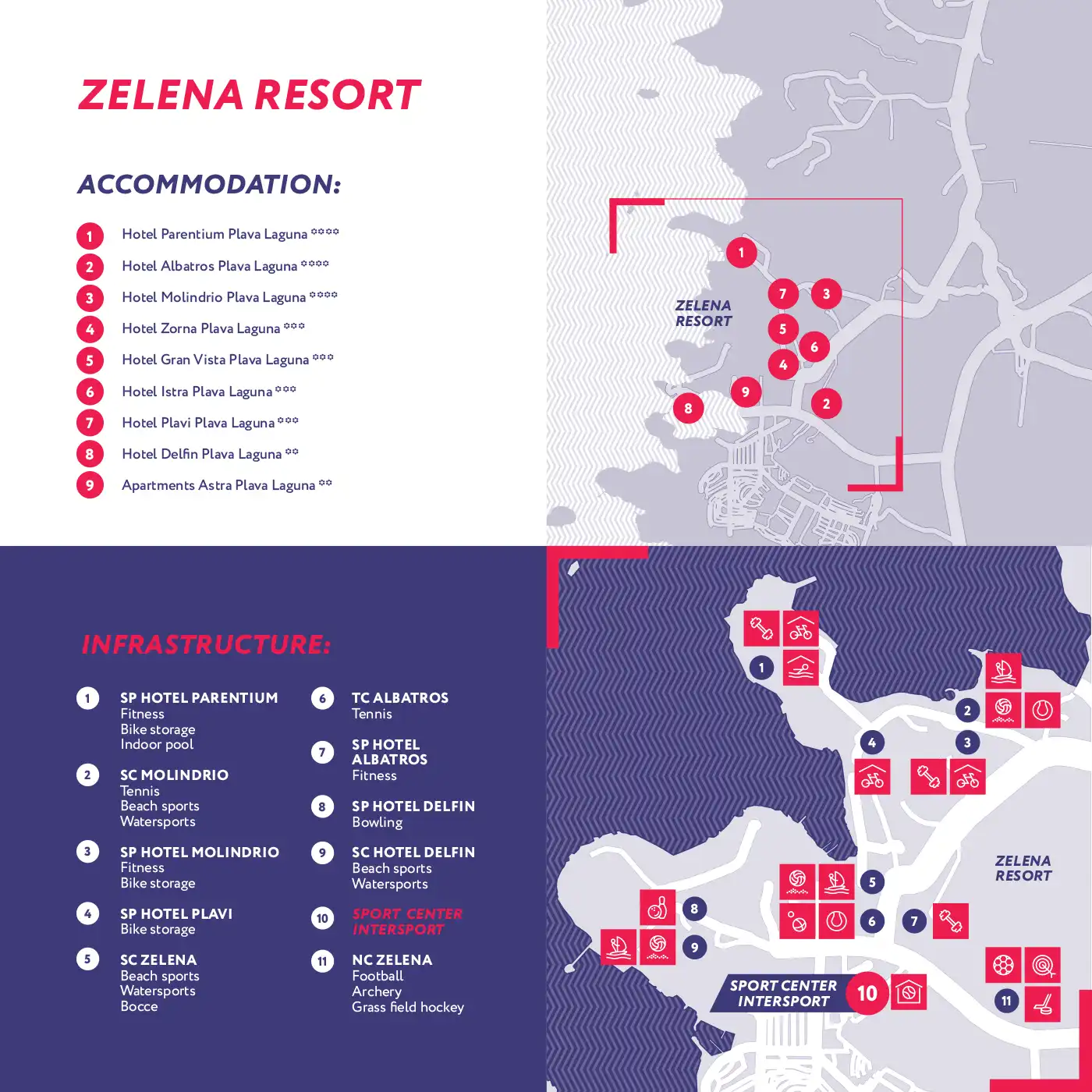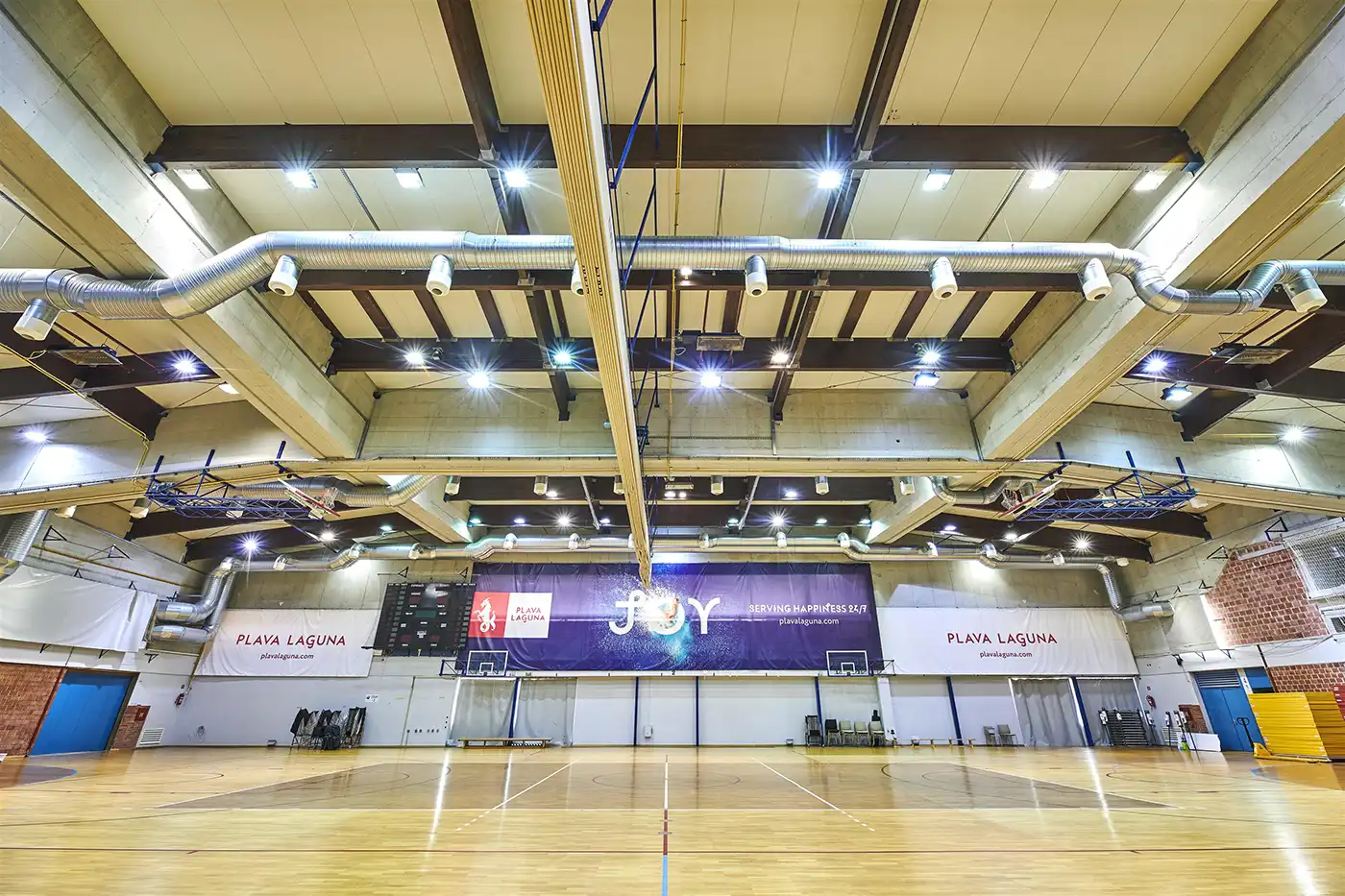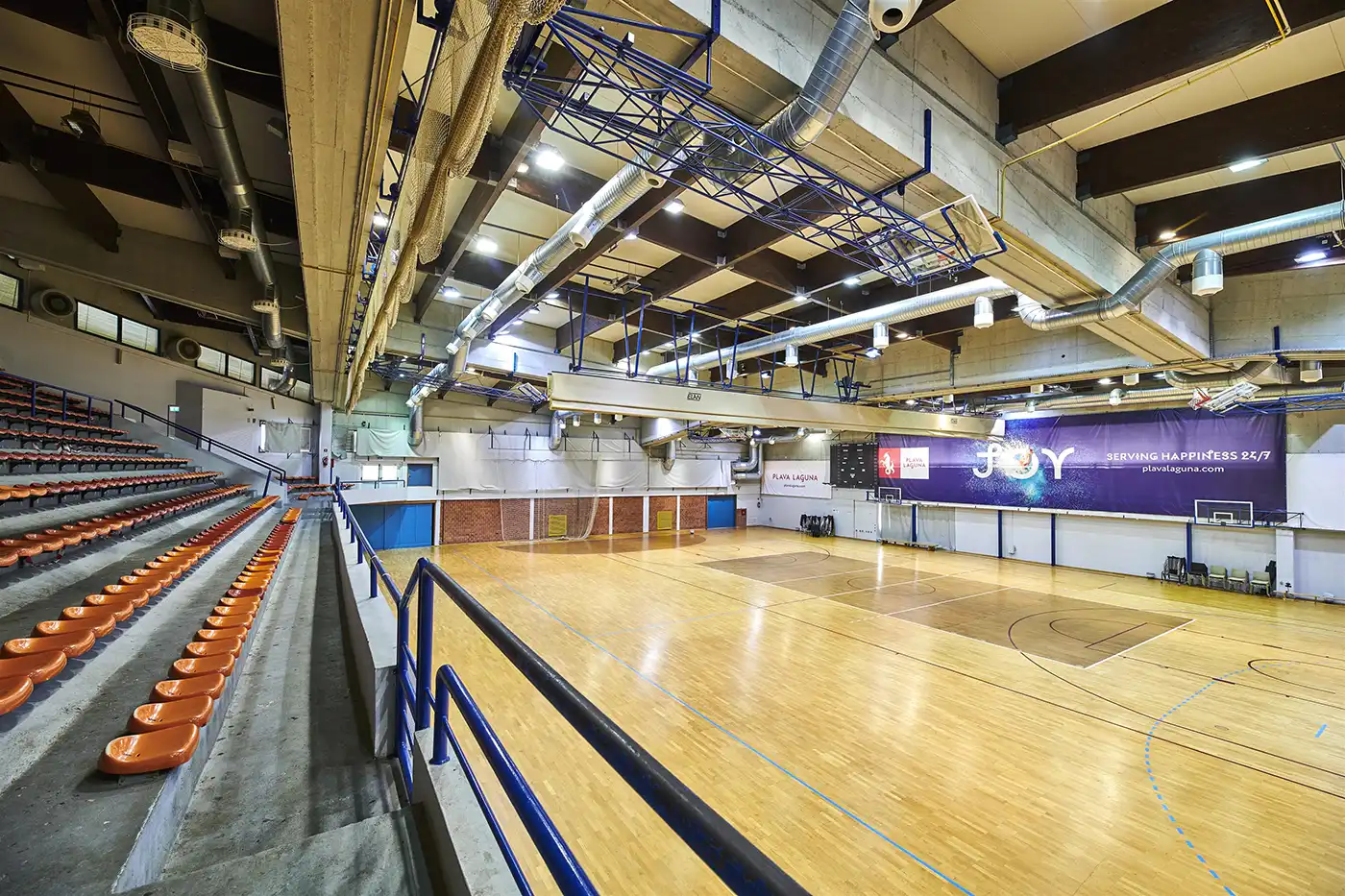VOLLEYBALL
TECHNICAL RULES AND REGULATIONS - U15 & U18

GENERAL OVERVIEW
This document ensures that all competition-related aspects are managed in a fair and structured manner. The key objectives of these regulations are:
- Defining the general conditions for participation in ESG Volleyball events.
- Outlining the sport program details.
- Specifying the technical rules.
- Establishing delegation composition guidelines.
- Setting the procedures for draws.
- Defining the process for protests and appeals.
Any exception to these rules can be made by the Event Technical Volleyball Committee (ETVC)
1. GENERAL CONDITIONS
The competition will be conducted in accordance with FIVB technical regulations and overseen by the Event Technical Volleyball Committee (ETVC). Any variations from FIVB regulations will be outlined in the event bulletin. The competition will follow Official Volleyball Rules published by FIVB, ensuring compliance with age-specific rules and guidelines. Decisions regarding issues not covered in this document will be determined by the ETVC.
Competition Categories:
- U18: Boys and Girls Categories
- U15: Boys and Girls Categories.
- Mixed-gender teams are not permitted
Age Eligibility:
- U18: Players born in 2008-2009-2010
- U15: Players born in 2011-2012-2013*
Younger players may be accepted upon approval by the ETVC.
2. SPORT PROGRAM
Events: Boys and Girls Team Competitions
3. TECHNICAL RULES
The competition will follow the latest Official Volleyball Rules as published by FIVB:
Competition Structure:
The tournament consists of two phases:
Phase 1: Round-Robin Stage
- All teams will participate in a round-robin format, where each team plays against every other team once.
- After all matches are completed, teams will be ranked based on their performance (points, goal difference, or other tiebreakers).
- The rankings from this phase will determine the placement of teams into divisions for the knockout phase.
Phase 2: Knockout Stage (Divisional Playoffs)
- Based on their round-robin rankings, teams will be divided into divisions.
- The number of teams per division will depend on the total number of participating teams.
- Each division will follow a knockout format, where teams compete in elimination matches.
Note:
- If the total number of participating teams is too low to apply this system effectively, the Organizing Committee will decide on an alternative tournament format to ensure fair and competitive play.
- Divisional Breakdown & Knockout Format
After the round-robin phase, teams will be divided as follows:
Champion Division (Top-tier teams)
- The highest-ranked teams from the round-robin phase will compete for the overall championship.
- The top three teams in this division will receive gold, silver, and bronze medals.
Division 2 (Mid-tier teams) (Gold star division)
- The next set of ranked teams will compete for Division 2 honors.
- The top three teams in this division will receive gold, silver, and bronze medals.
Divison 3,4 etc.
- If the number of teams allows, more divisions will be created to ensure fair competition.
- Medal Distribution
- Each division awards gold, silver, and bronze medals to the top three finishing teams.
- This ensures recognition for performance across all competition levels, not just the top-ranked teams.
-
Ranking & Adjustments
- The exact number of teams per division will depend on the total number of participating teams.
- Tournament organizers may adjust brackets if needed to ensure fair competition (e.g., adding placement matches if there is an uneven number of teams).
- Purpose of the System
This structure guarantees that:
- All teams get multiple matches through the round-robin phase.
- Each team remains engaged in the competition, regardless of early results.
- Competitive balance is maintained, as teams face others at a similar level in the knockout phase.
- Medals are awarded across multiple levels, making the tournament more inclusive and rewarding.
- The playing system and final competition schedule will align with sports traditions.
- The format depends on the total number of registered teams and will be outlined post-registration. Possible competition formats include: (1) Group Stage with Knockout Rounds, or (2) Single Round-Robin, depending on the number of teams.
- The final format will be confirmed after registration.
Game Format:
- Matches will be played in a best-of-three sets format for group stage matches.
- Semifinals and finals will be played in a best-of-five sets format.
Set Duration:
- All sets, except the deciding set, will be played up to 25 points, with a minimum two-point advantage.
- The deciding set (third in BO3 or fifth in BO5) will be played up to 15 points, with a minimum two-point advantage.
Net Height:
- U18 Boys: 2.43m | U18 Girls: 2.24m
- U15 Boys: 2.35m | U15 Girls: 2.20m
Scoring System:
- Match win 2-0: Winning team earns 3 points, losing team 0 points.
- Match win 2-1: Winning team earns 2 points, losing team 1 point.
Ranking Criteria:
- Number of wins.
- Total points won.
- Head-to-head results.
- Set quotient (sets won/sets lost).
- Point quotient (total points won/total points lost).
- If still tied, the team that won the last match between the tied teams is ranked higher.
Warm-up Time:
- A minimum of 30 minutes before the match.
- Teams must submit their lineup 30 minutes before match start.
Match Duration:
- A minimum interval of 1h30 between two matches (2-set matches).
- A minimum interval of 2h00 between two matches (3-set matches).
Ball Contact with Ceiling:
- If the ball touches the ceiling and remains on the same side, the game continues.
- If the ball crosses into the opponent's side after hitting the ceiling, it is considered out of play and the opponent is awarded the point.
Forfeit and Default:
- A team loses by forfeit if it does not have at least six players ready at game time.
- A team arriving 15 minutes late will automatically forfeit the match (2-0 or 3-0 score).
Disciplinary Measures:
- Yellow Card: Formal warning, no penalty.
- Red Card: Loss of point and serve for the penalized team.
- Double Yellow Card (or Red + Yellow simultaneously): Player is expelled without substitution.
- Coaches and Team Officials: Must follow proper conduct, failure to do so can result in verbal warnings, yellow/red cards, or expulsion.
4. DELEGATION COMPOSITION
Each delegation must include:
- Head of Delegation (HOD) (Mandatory)
- Players (Mandatory)
- Team Officials (Mandatory)
- Field of Play Officials (Referees) (Optional)
- Additional Adults (Optional)
Head of Delegation (HOD)
Each delegation must appoint a single head, who serves as the main liaison between the delegation and the Organizing Committee (OC).
Players
-
- All participants must be students.
- Only accredited players from the official team list may compete.
- Each team must consist of a minimum of 8 players**.
- Up to 2 liberos can be listed.
**Any exceptions require OC approval.
Team Officials
- Coaches:
- Each team must have at least one coach.
- Teams cannot compete without a designated coach.
- Other Team Officials:
- Roles may include doctors, trainers, physiotherapists, statisticians, and team managers.
- Not mandatory but must be specified during registration.
Field of Play Officials
- Each team may provide at least one referee. If insufficient referees are available, the Organizing Committee will appoint officials.
- Referees must hold either an international or national qualification.
- Referees must present certification during registration.
Additional Adults
- Roles may include interpreters, security staff, media personnel etc.
- Additional adults are optional and must be specified during registration.
- Unregistered individuals will not receive accreditation.
5. DRAW PROCEDURE
- The ETVC determines criteria and scheduling for the draw.
- The draw will be conducted fairly and transparently, with all registered teams randomly assigned to groups.
- If the total number of teams does not allow for equal group distribution, adjustments will be made to ensure a balanced competition format. If an odd number of teams are registered, the ETVC may create groups of different sizes while ensuring fairness in match distribution.
- The draw process will be overseen by the Event Technical Volleyball Committee (ETVC) to guarantee neutrality.
- Once the draw is completed, the final group placements will be published and communicated to all teams.
- Any unforeseen issues related to the draw will be resolved by the ETVC before the competition begins.
6. PROTESTS AND APPEALS
- Protests must comply with FIVB Volleyball Rules.
- Protests may be filed in case of:
- Errors in scorekeeping, timekeeping, or referee decisions affecting match results.
- Decisions related to forfeits, eligibility violations, or match scheduling
Protest procedure:
- A player from the protesting team must sign the scoresheet immediately after the match.
- A written explanation must be provided in English within 30 minutes of the incident.
- A protest fee of 100 EUR must be submitted in cash to the ETVC.
If the protest is upheld, the fee is refunded; otherwise, it is retained by the ESG.
VOLLEYBALL - Provisional program
| Courts | day | Schedule |
|---|---|---|
| Intersport | 22 March Sunday | arrival - training |
| Intersport | 23 March Monday | 9:00-18:00 |
| Intersport | 24 March Tuesday | 9:00-18:00 |
| Intersport | 25 March Wednesday | 9:00-17:00 |
The program is subject to change depending on the number of registered teams.
VENUES INFORMATION
POREČ
ZELENA RESORT MULTIFUNCTIONAL INTERSPORT COMPLEX
The multifunctional Intersport complex located in the Zelena Resort consists of two sport halls, dressing rooms, and stands.




